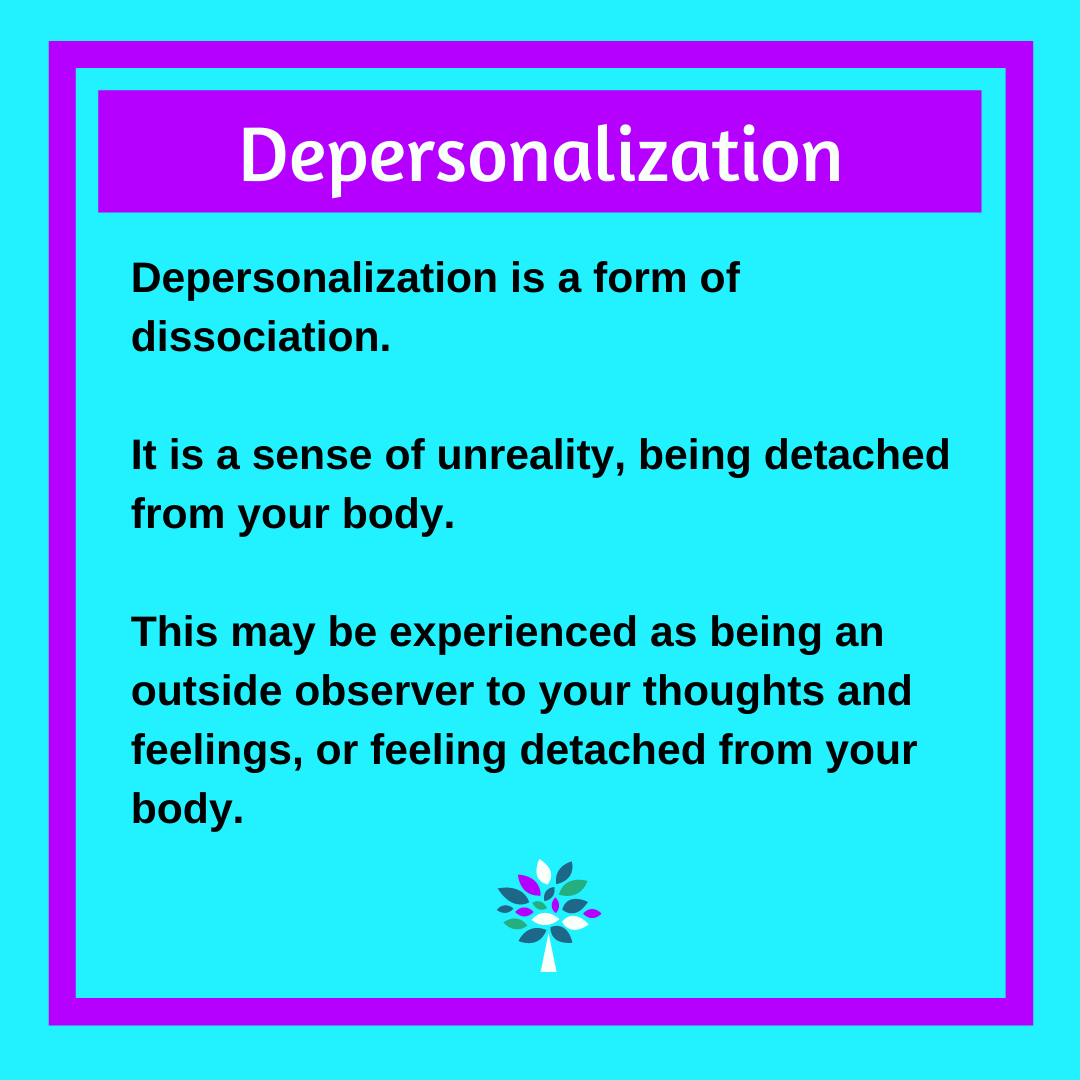Depersonalization

Depersonalization is a form of dissociation.
It is an experience of being detached or disconnected from one’s body. This may be feelings as though you are an outside observer of your thoughts and feelings. Feeling robotic. The experience of standing outside of yourself observing what you are doing. Feeling like your body is not real.
During the experience there is no actual loss of touch with reality as the person recognizes that this experience is not ‘normal.’ And as with derealization, although people don’t often talk about it, the experience is fairly common. It is estimated that approximately half of all people will experience at least one episode of depersonalization in their lifetime.
Depersonalization is often associated with anxiety and sometimes is secondary to use of certain drugs or medications. Although most experiences of depersonalization are brief and transitory, it can be quite distressing.
There is reason to believe that trans and non-binary folx might be at greater risk of developing depersonalization given the distress that can occur when their body does not match their sense of self and their identity. Depersonalization and other forms of dissociation may occur as a means of protecting oneself from this distress.
Treatment will depend on the cause of the depersonalization and often therapy is recommended along with the teaching of grounding skills. For the gender diverse folx, obtaining gender affirming medical care such as hormones can sometimes reduce or eliminate experiences of depersonalization.










